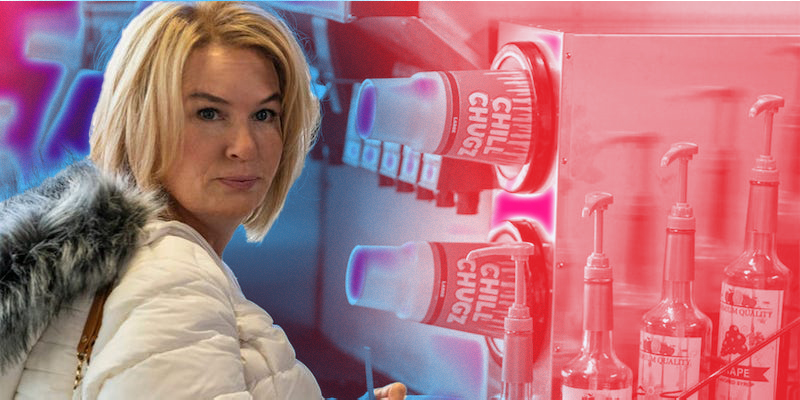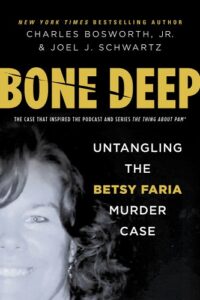As the recipient for Betsy Faria’s insurance after Faria’s murder, Pam Hupp shocked investigators with her callous and bizarre attitude towards her dead friend. Hupp soon became a suspect in Faria’s untimely end.
June 25, 2012—six months after the murder of Betsy Faria
The big, bald cop had no reaction when his prime witness casually tossed off the most unexpected, shocking comment defense attorney Joel Schwartz had ever heard in a police interview. He watched the video of this new interview intently as murder suspect Pam Hupp explained to Sergeant Ryan McCarrick that the many personal issues she was juggling—selling a house, buying a new house, her own medical issues—also included handling the financial affairs for her mother, who was suffering from dementia and Alzheimer’s, while living in a residential care center.
In the middle of that lengthy diatribe, Pam casually told the cop, “And if I really—hate to say—wanted money, my mom’s worth a half a million that I get when she dies. My mom has dementia and doesn’t half the time know who we are… I know this sounds morbid and stuff like that, but I am a life insurance person. But if I really wanted money, there was an easier way than trying to combat somebody that’s physically stronger than me. I’m just saying.”
What was she just saying? Schwartz backed up the recording and played it again. Yes, he had heard it right the first time. Pam Hupp had just raised the question of whether she killed Betsy Faria and suggested it would have been easier for her to kill her own aged, ill mother if she wanted money. And she had added—apparently as a factor she thought counted in her defense—that Betsy was stronger than she was and would have been more difficult to kill.
Schwartz stared at the image of this bizarre woman in the video for a long time. Had she just actually weighed the options of killing her mother or Betsy? Had she actually pondered her level of risk in each option? Had Betsy Faria died because she came up on the fatal end of a monstrous calculation by this disturbed woman?
Had Betsy Faria died because she came up on the fatal end of a monstrous calculation by this disturbed woman?Schwartz was learning that Pam Hupp was an unfiltered font of inappropriate, off-the-wall, inexplicable comments—shockingly ill-conceived utterances that often were self-incriminating. Why in the world would she raise with the top cop on the case the question of whether it would be easier to kill her mother for $500,000 or her friend for $150,000?
Schwartz watched the exchange on the video again and again. On June 25, 2012, just two days short of six months after Betsy’s murder, Sergeant McCarrick—the case officer for the Major Case Squad investigation into the Betsy Faria murder, and the detective who probably knew more about it than any other cop—had not even blinked as Pam discussed her options for killing for profit.
He just leaned forward with his arms folded on the table in front of him in a small interview room in the Lincoln County Sheriff’s Office and continued to look at Pam with no change in expression. He didn’t even make a note on the legal pad in front of him. And she simply moved on to a discussion of how Betsy’s family had harassed her over the insurance money.
“As soon as the phone calls started with her family—it was her father, her mother, her sisters, calling. ‘Pay for the funeral. Pay for this. Pay for that.’ I was like, ‘I’m not paying for a funeral that her husband killed her. I’m not having Betsy pay for that.’ I’m sorry. That’s my view.”
“OK,” McCarrick said flatly.
Pam Hupp’s voluntary discussion of the advantages of killing her mother versus killing Betsy had come shortly after McCarrick mentioned her receipt of Betsy’s insurance money as an issue the defense was sure to raise when she testified against Russ Faria at his trial set for a month later in July. McCarrick scheduled the interview—meeting Pam for the first time—to “hammer out” some of the discrepancies in her comments to various detectives. But it was clear to Schwartz that McCarrick and, by extension, the rest of the detectives and the prosecutor were not addressing suspicions that Pam Hupp could be a suspect in Betsy’s murder. The meeting clearly was to prepare Pam to be a valuable witness against Russ Faria and to stand up to questioning by the defense.
McCarrick had opened by explaining that Russ’s family had spent a lot of money to hire a “pretty good law firm” to defend him.
Pam—dressed casually in a yellow T-shirt, gray capri pants, and flip-flop sandals and sipping on a bottle of soda—listened intently as McCarrick said, “Their whole job is to make sure that Russ is not prosecuted for murder and to try to find anyone else on the planet to blame, but him, so their client gets off. You’ve seen TV. You know how these things go, what they try to do.” And then he casually dropped the kind of cheap shot Schwartz was used to from cops like McCarrick. “This guy . . . this guy will put his mother up for the murder if he can get his client off. OK?”
Schwartz chuckled and shook his head. Thirty minutes into the interview, the burly detective had rolled his chair back from the table and was leaning back casually when he unexpectedly broached the subject that had to be worrying the cops and prosecutors.
“The insurance policy,” he said without a hint of drama.
Pam’s head bobbed down and then back up as she said softly, “Uh-huh.”
“Huge in this case, obviously,” McCarrick explained. “The biggest doubt that they are going to try to create is that you . . . prior to her murder . . . wound up being the benefactor of $150,000 in cash.”
“Uh-huh.”
“What you’re originally telling investigators is that she wanted you to do this to try to take care of . . . make sure the kids are taken care of because . . . she’s afraid Russ and the kids will blow through it. However, now you have this money and have not turned any of this money over to the family or the kids.”
“That’s correct.” Pam nodded without a hint of concern.
“That’s a huge problem… I’m not telling you you’ve got to do that. I’m just telling you that it’s going to be a huge issue of doubt in court because, by your own volition, Betsy has told you that she wants you to hold on to this money to make sure the family . . .the girls are taken care of. Yet they haven’t seen a dime of that money. You still have it and—”
“I think if you really look at my wording, it wasn’t exactly she wanted me to make sure the girls are taken care of,” Pam interrupted as she began a shameless rewrite of history to justify refusing to give any of the insurance money to Betsy’s daughters. Rattling off a list of the daughters’ alleged issues and problems, she declared she had intentionally avoided any involvement with them. “Honestly, they’re not that nice to her (Betsy)… have never been nice to her… I know all of the problems with them… all that crap… Again, not my world.”
In fact, Pam now maintained, Betsy did not want the girls or her family to get the money. “She did not want them to have their hands on the money… Not that she didn’t want me to help or do whatever I wanted with it. ‘Do not let them get their hands on it, or the family, because the family will give it to them.’ That was her major concern… They’d ‘piss it away.’ ”
Pam added with that same smugness that $150,000 was not a lot of money to her and she had not spent a dime of it. And, almost as an afterthought, she said she had been planning to set up a revocable trust for Betsy’s daughters, but had not done anything about that yet.
McCarrick said he had already received calls from people wanting to make sure he knew Pam had put her house up for sale and had bought a new house. Pam insisted she hadn’t used any of the insurance money for the new house and had, in fact, paid $65,000 less for it than she made from the sale of her previous house. Downsizing to a smaller ranch house was part of the Hupps’ ten-year financial plan for retirement after her two adult children left home, as well as an accommodation for her physical limitations resulting from a fall in 2009.
And then she casually tossed out her stunning consideration of whether it would be easier to kill her mother or Betsy.
___________________________________


















